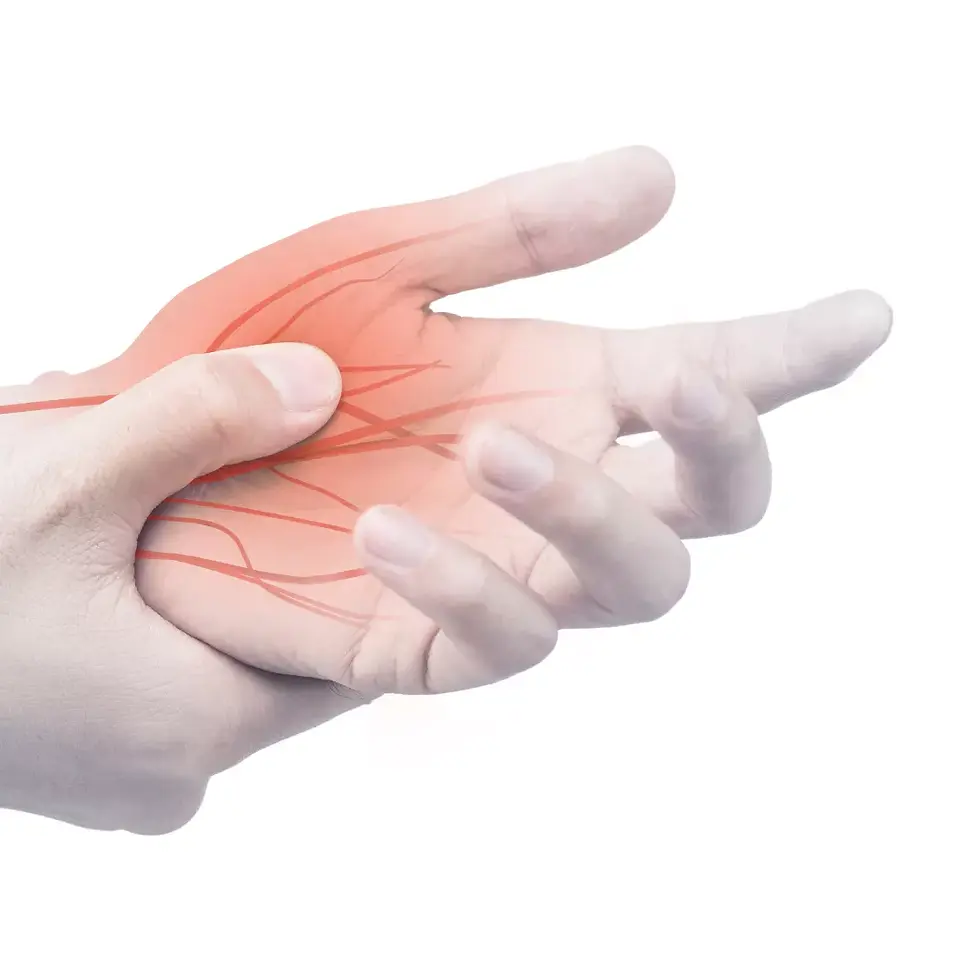
Nerve pain is one of the worst pains you can experience. While it might not be deadly, it can be draining and defeating. That's because nerve pains tend to linger for a long time before subsiding or passing on.
Some are less severe than others, but they're all debilitating in the sense that they could steamroll through your life and prevent you from doing what you normally do. Nerve pain is like a bushfire, burning out any happiness you may have left.
But thankfully, nerve pain can be treated with the help of a New Jersey pain management specialist. Here, we explain how nerve pain can be a burden in your life and why it's so difficult to live with.
Nerve pain can Limit Your Mobility
Nerve pain can make it difficult or impossible to move around comfortably. As a result, you may be unable to walk, stand, or sit for long periods of time. This can affect your ability to work and make it difficult for you to do the things you enjoy. It may also limit your ability to work or engage in other activities.
The problem with nerve pain is that it tends to be a chronic condition. Some people live with it for years and decades. In addition, it can lead to serious side effects, such as depression and anxiety. It's important to know how to manage nerve pain so that you don't end up limiting yourself unnecessarily.
Nerve Pain can Make You Feel Tired

Nerve pain can make you feel tired, even if you have no reason to be. This is because nerve pain triggers a fight-or-flight response in your body, so you will often experience a rush of adrenaline in your bloodstream. As a result, your heart rate increases, which can make you feel more tired than usual.
The nerves are responsible for sending signals to your brain, which then sends signals back to your body. These signals tell your body what to do and when to do it. So when you have nerve damage, these signals get confused or lost, and your body doesn't move the way it should. This can lead to muscle weakness, numbness or tingling in the limbs, spasms of various kinds, and many other symptoms of nerve damage.
Nerve Pain can Also Make it Difficult to Sleep
Nerve pain can also disrupt your sleep cycle as it makes it difficult to fall asleep or stay asleep throughout the night. You may wake up in the morning feeling stiff or sore because of nerve pain. You may also have difficulty sleeping because the pain keeps you awake.
It's hard to sleep, eat, sit still or concentrate on anything but the pain. And there's no cure for nerve damage — it may go away eventually and come back at any time. So if you suffer from nerve pain, it's important to seek treatment to manage your condition, so they don't interfere with daily activities.
Nerve Pain can cause Headaches And Migraines
Some types of nerve pain cause headaches and migraines, which are common causes of disability worldwide. Migraines are often accompanied by nausea and vomiting, which can make them even more disabling.
It's important to remember that if you have nerve pain, it will not just go away by itself. If left untreated, nerve pain could worsen over time, causing more problems for you.
Nerve Pain can Affect Mood and Mental Health

People with nerve pain often report symptoms of depression, anxiety, and other mood disorders. Some studies suggest that these problems are present even before symptoms of nerve pain start showing up. This might mean that treating the nerve pain itself won't necessarily make these problems go away; however, treating depression and anxiety may help relieve some of your symptoms as well.
If you suffer from nerve pain, it's important to seek out treatment as soon as possible. You want to make sure that you get the right treatment so that there will be no permanent damage done to your body or brain.
Nerve Pain is Unpredictable
It can come on suddenly or gradually worsen over time. It may disappear as quickly as it appeared or linger for months. People who suffer from this condition often find it difficult to work and perform daily activities because of their discomfort and lack of mobility. Nerve damage can lead to permanent disability if left untreated for too long.
There are different types of nerve pain, but they all share common symptoms:
• Numbness
• Tingling
• Burning sensations
• Muscle weakness and fatigue
• Stiffness in your neck, back, or limbs
Nerve Pain Makes Everyday Tasks Difficult
In addition to its unpredictability, nerve pain poses other challenges for patients who suffer from it. It can make simple tasks like getting dressed or brushing your teeth a chore because it hurts so much just to move your arms or legs.
It makes it hard for people with nerve damage to hold things with their hands because even something as simple as picking up an object from the floor can cause extreme discomfort in the affected area.
Nerve Pain Affects Your Ability to Concentrate
The pain that comes with nerve pain is often very intense. It can be hard to concentrate on anything else when you are in so much pain. The problem is that many people do not know what nerve pain feels like and do not understand why it happens or how to deal with it.
Nerve Pain can Affect Your Relationships

For many people with nerve pain, it can be difficult to maintain relationships because of the nature of their condition. When you have nerve pain, it's likely that you'll have trouble doing some of the things you used to enjoy doing together. This may make it seem like your partner is not as supportive as they could be, even though they are just trying to help you avoid further injury or damage to yourself.
You may find yourself avoiding social situations because you don't want to be in pain. Your relationship with other people may be affected by your condition. You may feel that you're less interested in activities you once enjoyed or that your friends are less interested in you because of your condition.
Nerve Pain Can Affect Your Life
Nerve pain can make everyday tasks difficult and exhausting. For example, you might not be able to work or go to school anymore because of the pain or numbness in your arms or legs, which will affect your income and future job prospects. You also might not be able to take care of yourself as well as you would like because of the fatigue caused by nerve pain.
Nerve pain can affect your quality of life. You may not be able to do the things you used to enjoy because of the constant pain that comes with it. It could also affect relationships with family and friends because you will have less energy to spend time with them.
Nerve Pain Worsens Without Treatment
People who suffer from nerve pain may notice that it worsens over time without treatment. In fact, some people who have chronic nerve pain find that their symptoms get worse as time goes on. This is because nerve pain is often associated with nerve inflammation, which can worsen with time if left untreated. The longer you wait to seek treatment. The more severe your symptoms are and the longer it will take for you to recover from nerve damage.
Thankfully, there are a number of different treatment options available if you have nerve pain, but they will only work if you seek them out. You must talk to a healthcare professional and convey that you have a problem and are sincerely looking for treatment options.
They may suggest non-surgical treatments such as injections or physical therapy, medical massage, and acupuncture.
It's important to seek help from a New Jersey pain management specialist who has experience treating nerve pain so they can recommend an appropriate treatment plan for you.

Comments